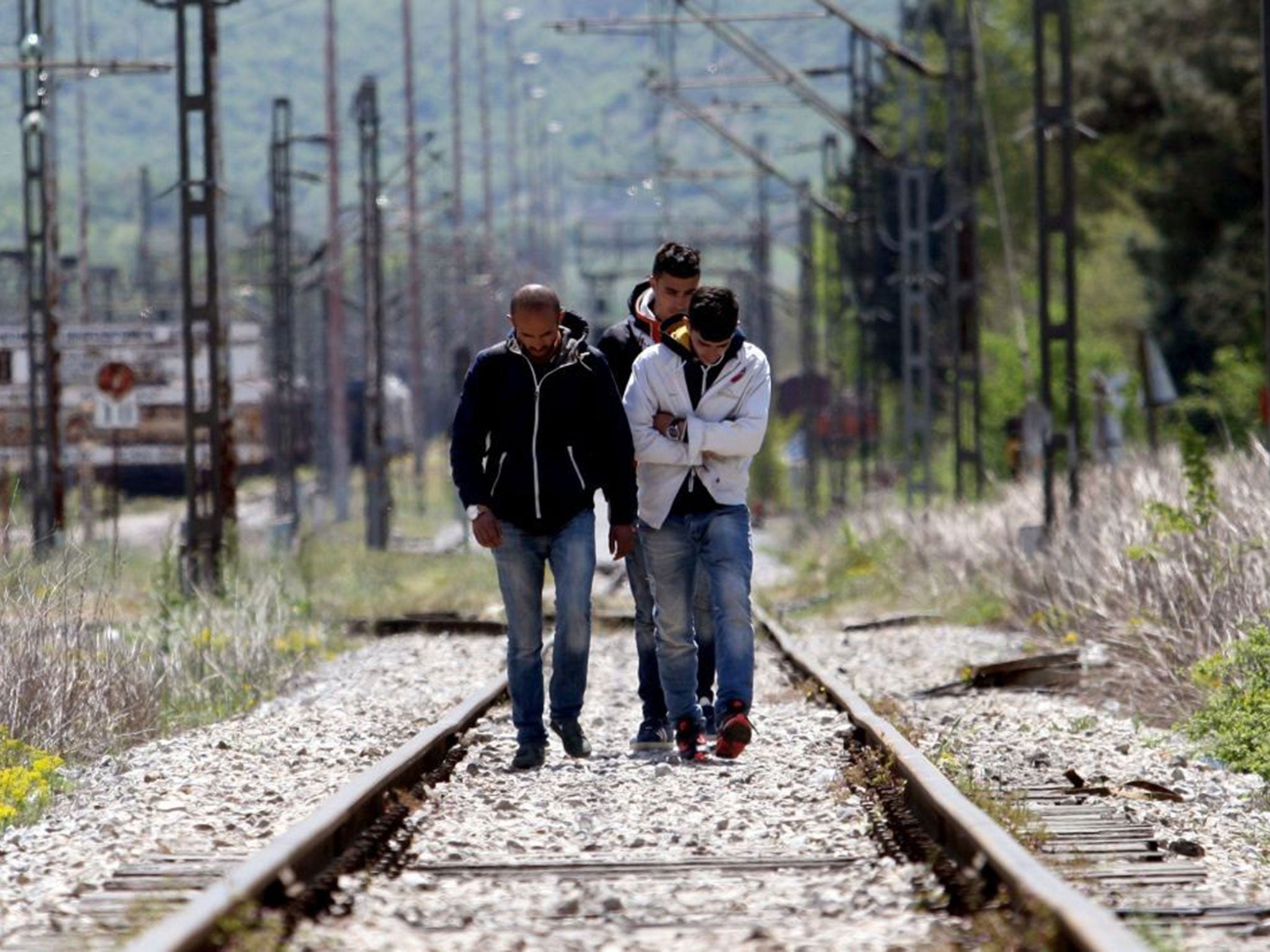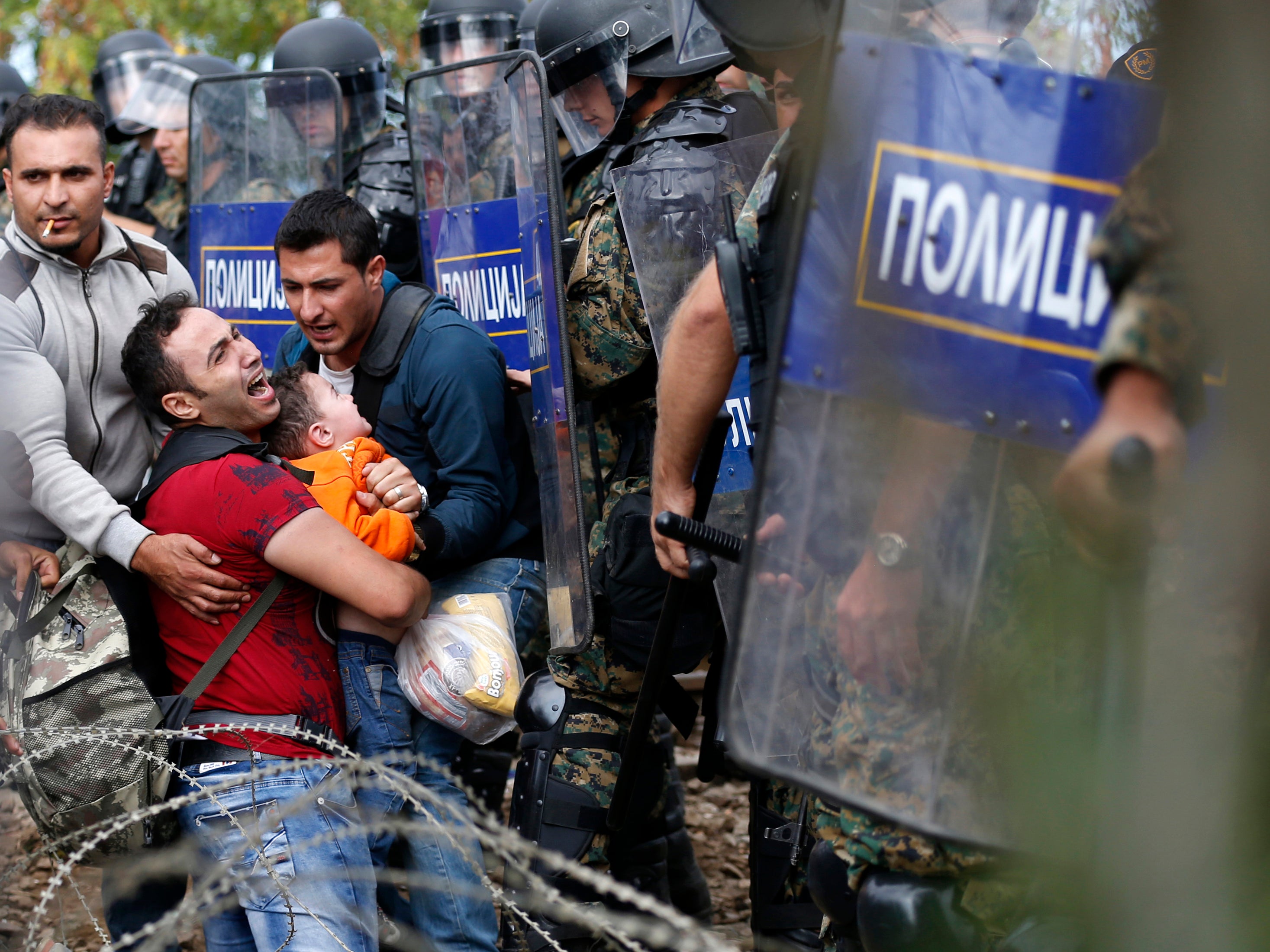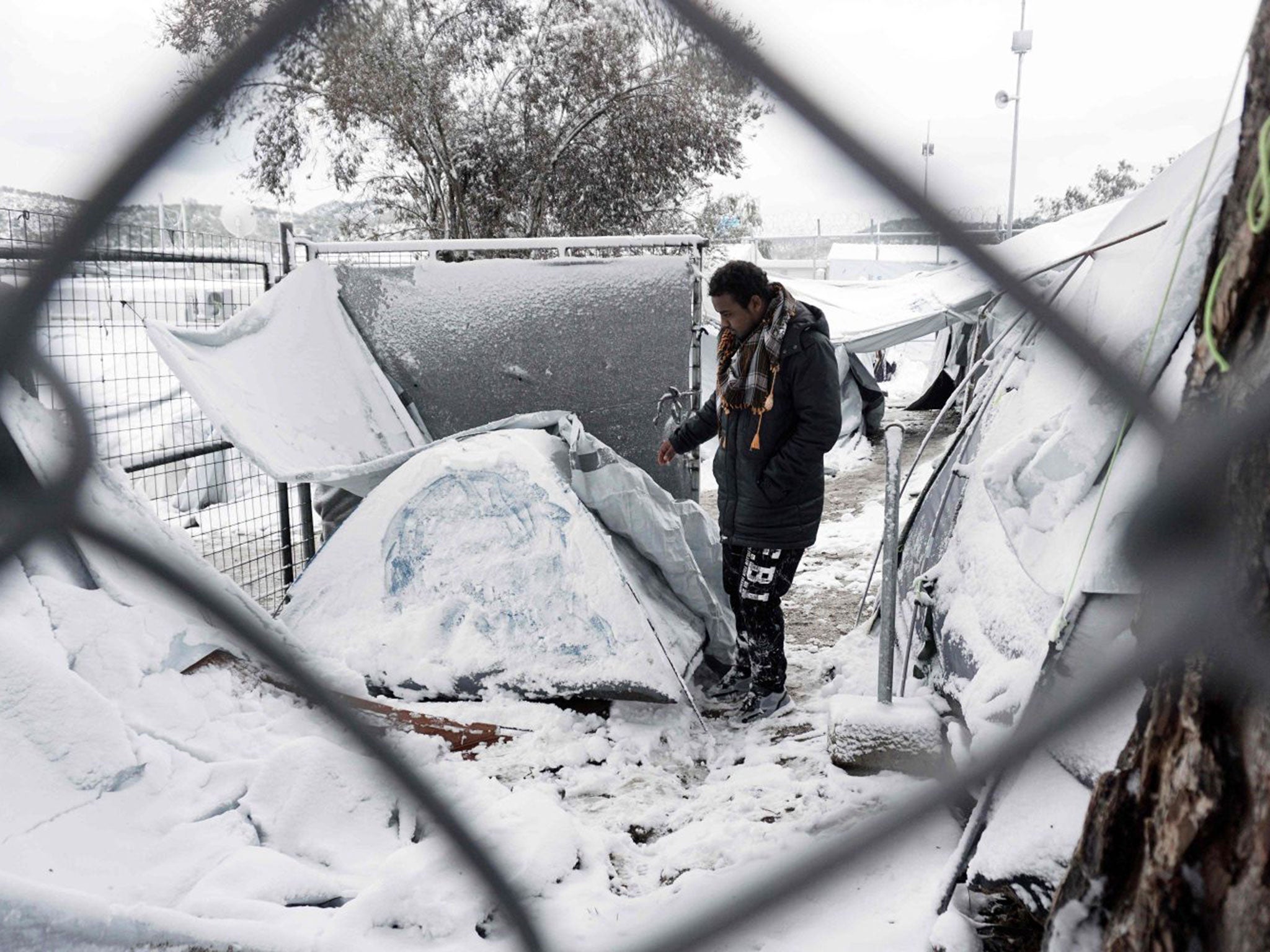The Greek hairdresser who has helped more than 20,000 refugees after 'catastophe' arrived on his doorstep
'We could not allow this to happen metres away from our houses, we had to do something'
Your support helps us to tell the story
From reproductive rights to climate change to Big Tech, The Independent is on the ground when the story is developing. Whether it's investigating the financials of Elon Musk's pro-Trump PAC or producing our latest documentary, 'The A Word', which shines a light on the American women fighting for reproductive rights, we know how important it is to parse out the facts from the messaging.
At such a critical moment in US history, we need reporters on the ground. Your donation allows us to keep sending journalists to speak to both sides of the story.
The Independent is trusted by Americans across the entire political spectrum. And unlike many other quality news outlets, we choose not to lock Americans out of our reporting and analysis with paywalls. We believe quality journalism should be available to everyone, paid for by those who can afford it.
Your support makes all the difference.Vasilis Tsartsanis was filming a music video near the Greek-Macedonian border in September 2014 when he noticed small groups of people trudging through the fields.
Confused over why families would be walking through “the middle of nowhere”, he asked them where they were from.
“Syria,” they replied. And where were they going? “To Europe.”
Vasilis, a hairdresser and part-time film maker, was mystified and returned to investigate why people were starting to journey through the sleepy area.

“I got in touch with the people and I realised something not normal was happening,” he told The Independent.
“People were in the middle of nowhere, winter was coming. Every day I went, I was seeing more and more people.”
What started as a trickle of refugees crossing from Greece to Macedonia on the way to western Europe would turn into a flood, with hundreds then thousands of people starting to pour through the previously unknown village of Idomeni every day.
It has since become one of the largest refugee camps in Europe, housing 15,000 people in squalid conditions until Greek authorities started clearing the area in May.
Btu the magnitude of the crisis to come was not foreseen over two years ago, when Vasilis found families hiding in fields without shelter, water or food.
He and his friends started gathering donations and delivering necessities when they could.
“We could not allow this to happen metres away from our houses, we had to do something,” he said. “The local people are a very conservative society but they started to support us. So we decided to take some donations and see what we could do.”
The small band of volunteers quickly realised the situation was growing beyond their meagre capabilities, once taking 300 sandwiches, only to be confronted by 500 asylum seekers waiting to cross the border.
Many were severely ill, with pregnant women and babies among the crowds, so Vasilis started to use his car as a makeshift ambulance ferrying refugees to friends’ houses and convincing local doctors to treat them without payment.
He quickly gained the trust of the new arrivals, who revealed they were being charged by smugglers exploiting the lack of authorities to leave Greece, then again by gangs over the border to enter Macedonia.
On one night in May 2015, Vasilis got a phone call from a refugee he had helped, saying they had been beaten by more than 100 mafia members inside Macedonia and fled back towards Greece.
“Everyone came back bleeding, we had to take 11 people straight to the hospital,” he said. “They stole the Syrians’ papers and passports.”
There were still no authorities and no charities on the ground at Idomeni, but the number kept on increasing as Vasilis and other locals gave what help they could to around 1,000 people arriving every day.
“We were using our own money, we weren’t getting any help from Europe,” he said. “We couldn’t continue any more, the numbers were too many.”

Having alerted local authorities, politicians and NGOs to the dire situation, Vasilis was invited to speak at the European Parliament in April 2015.
He then went to media in the UK, France and US to invite journalists to document the growing scale of the “catastrophe”.
And they came, with the reports from May 2015 spurring action by Greek authorities and international aid agencies who moved into Idomeni.
But as the refugee crisis peaked, Serbia and Macedonia closed their borders and trapped thousands of people in what Vasilis called a “humanitarian catastrophe in the heart of Europe”.
Official clearances of the Idomeni camp started in May but refugees continue to arrive, despite a controversial deal struck between the EU and Turkey to stop boat crossings to Greece over the Aegean Sea.
Several migrants have been killed by freezing temperatures sweeping the continent so far this year, with thousands of refugees struggling to survive in tent camps and on the streets.
“It’s like we make them to feel worse than animals,” Vasilis said. “We would put dogs somewhere better.”

He still watches refugees passing through Idomeni almost every day, with some being rounded up in remote forests and taken back to Thessaloniki by police.
“Whoever has money is still able to pass illegally,” he added. “Inside the illegal passing will come the criminal passing and the radicalism.
“Let’s start to take people from Libya, from Egypt, from Syria. We need to know who is coming and where from.”
Vasilis fears the crisis and terror attacks are making Europe more conservative and susceptible to radicalism as it “lives under fear”.
But he is continuing to do what he can for the refugees of Idomeni, despite receiving no salary and turning down jobs at NGOs. “I’m still working with them, I’ll never stop, ” he said.
The hairdresser, whose work is supported by the Open Society Foundations, has travelled around Europe to meet some of his 20,000 contacts.
Many have sent messages of thanks from their destinations including the UK, Germany and Sweden.
Eiad, who now studies in Frankfurt, wrote: “Syrians will never forget what you personally offered, what you have done, and Greece... we will never forget dear friend Vasilis.”
Join our commenting forum
Join thought-provoking conversations, follow other Independent readers and see their replies
Comments